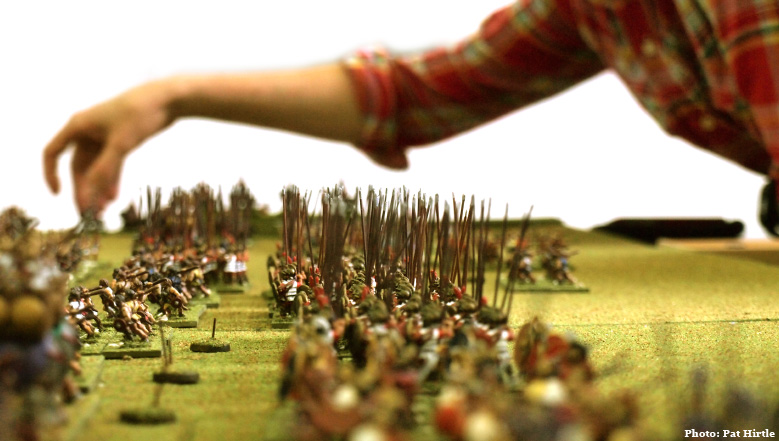As February draws to a close thoughts naturally proceed to the Society of Ancients' battle day, which this year is Ilipa, a battle I have all the necessary figures for, and which will be held on the weekend of March 23rd/24th.
I have been a sympathetic participant in several other battle days, these being the refights of Pharsalus in 2016 and Paraitakene in 2018. I also did a solo boardgame version of Bosworth in 2021, but it hardly counts. I had grand plans to do Mantinea in 2023. Unfortunately, I got into a funk and didn't get the figures painted.
The general idea for battle days at my end is to get together with likeminded individuals and play the same battle as the Society chaps, on more or less the same date, and see about submitting a report on it to the Society's journal Slingshot. Can we manage all of that this year? I'm not sure, but it's worth a try.
Ilipa.
I have a bit of a soft spot for both commanders, the brilliant Scipio and the hapless Hasdrubal. Of course, Hasdrubal's haplessness was largely down to his having to face Scipio every other battle. He seemed to do mostly all right otherwise, was an organiser a union would be proud of (he raised new armies after massive defeats and got Syphax to commit to the Carthaginian cause), while to further commend him he was the father of the magnificent Sophonisba.
How to do the battle.
My best battle day effort by far was the Pharsalus game. Six players, myself as umpire, bespoke rules, and a report for Slingshot. I won't be able to do all of that this year, but would like to get as close as I can.
I've been thinking of using either Commands & Colors: Ancients or Simon Miller's To the Strongest! for the rules. My table layout means that for the former I would need to adjust the scenario to fit suit my space limitations (the wargaming equivalent of converting iambic pentameter to trochaic tetrameter...); for the latter I could just about use the superb James Roach's scenario as it is. My favourite rules, Lost Battles, could be used at a pinch, but they are are not an easy ride for first-time gamers.
Much depends on how many players I can muster. My offsider SP will be away for a few weeks in 'Nam (cue various Rambo-era jokes) fulfilling work commitments. This means that we will not be able to play on the designated weekend, but I think we can get away with that. Between now and then I will try to drum up another few participants and decide how best to so things.
It's good to have a little project on the go.
